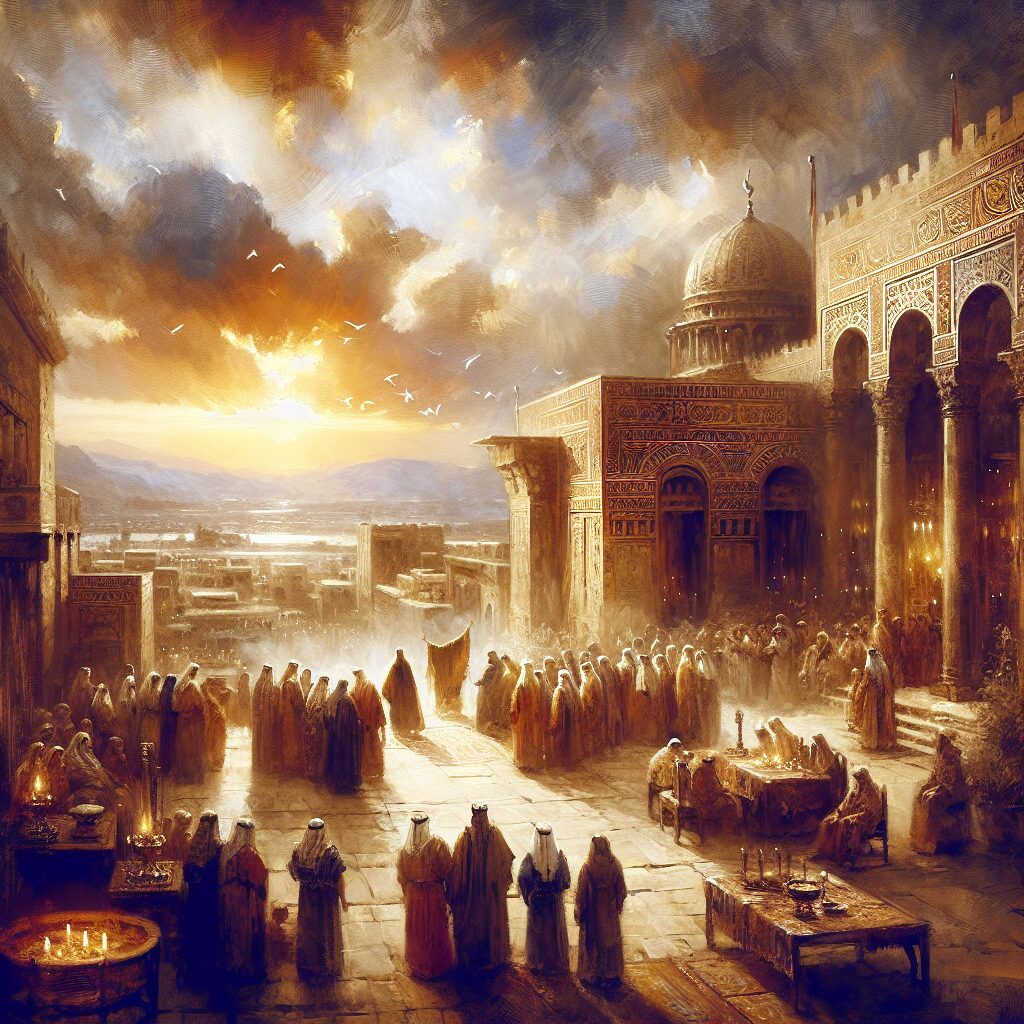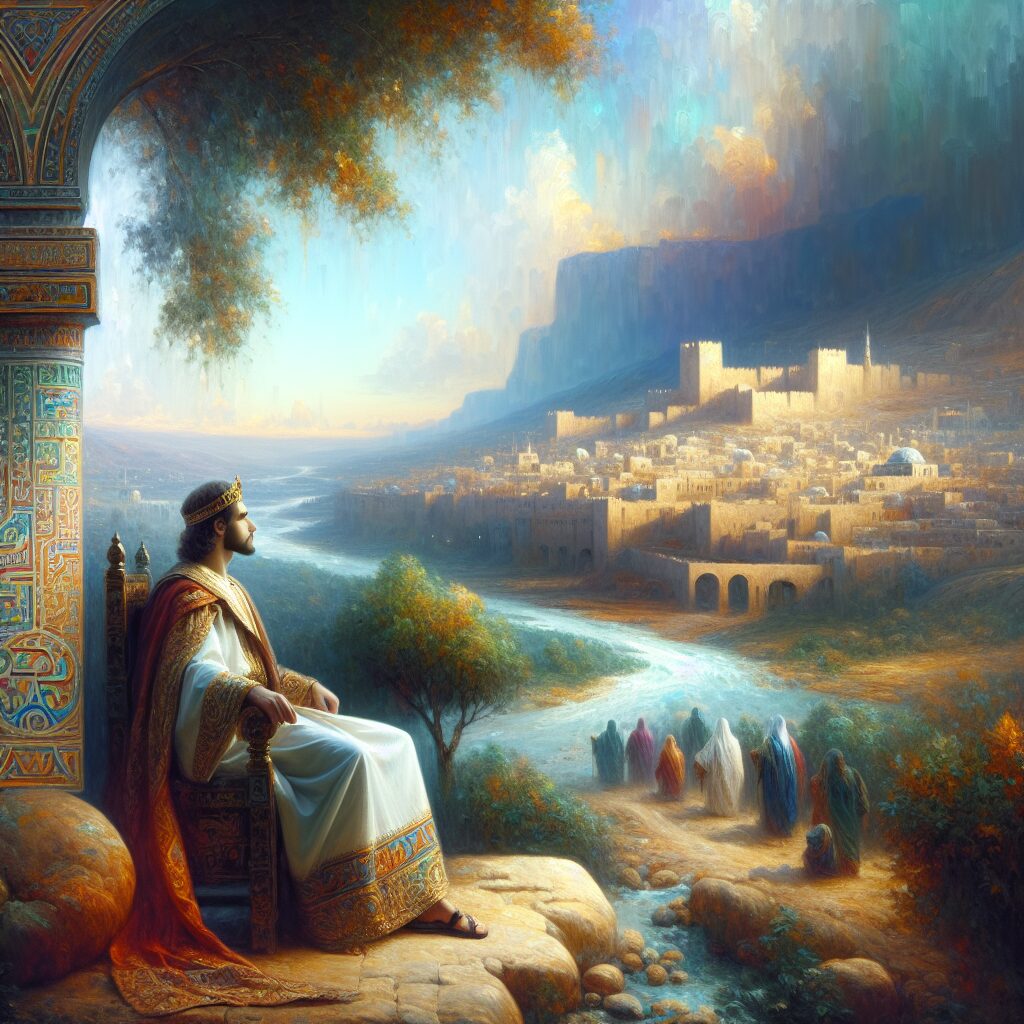Daily Bible Affirmation for April 15, 2020 – 2 Kings 20:21

Bible Verse
“And Hezekiah slept with his fathers: and Manasseh his son reigned in his stead.” – 2 Kings 20:21
Reflection
The verse from 2 Kings 20:21 marks a transition of leadership from Hezekiah to Manasseh. On the surface, it may seem like a simple historical record, yet it symbolizes a profound moment of change and continuity. This verse, though brief, gives us an opportunity to reflect on themes of legacy, the passage of time, and the cycles of life.
Hezekiah was known as a righteous king who trusted in God and sought to do what was right in His eyes. Under his leadership, Judah experienced significant spiritual reform and miraculous events that reaffirmed God’s presence and power. As we meditate on the closing of Hezekiah’s chapter, we are reminded of the impermanence of life and the importance of the legacies we leave behind. It becomes a prompt for us to consider our own lives—what values and positive influences are we imparting onto others? What foundations are we laying for future generations?
In the passing of one generation to the next, we witness God’s unending grace and involvement in human history. Even as individuals pass, God’s work persists through new leaders and new beginnings. Hezekiah’s story encourages us to live with faithfulness and integrity, knowing that our contributions to God’s plan are woven into a much larger tapestry beyond our comprehension.
Yet, this transition also brings a reminder of hope and trust in God’s sovereignty. Manasseh, Hezekiah’s son, was to inherit the throne and with it, the responsibility to continue the path laid by his father. This verse invites us to consider our own transitions—whether they be in our personal lives, careers, or spiritual journeys. It encourages us to embrace change with trust in God’s wisdom and provision.
Furthermore, this moment in scripture holds a lesson about the inevitability of change and the constancy of God’s faithfulness. Though leadership may change hands, God remains steadfast, guiding and nurturing His people. We can take solace in knowing that God’s plans for us are grounded in love and purpose, much like His plans for the people of Judah during this significant shift.
This verse also challenges us to think inclusively, recognizing that all individuals have a role to play in God’s divine narrative, regardless of their past or future. We should encourage one another through transitions and uplift each other in prayer, trusting that God’s grace covers all those who seek His face.
Closing Thought
As we reflect on the transition from Hezekiah to Manasseh, let’s be reminded that life is full of changes, yet God’s love and purpose remain constant. May we be inspired to live with hope, sow seeds of faith, and trust that each ending is but a new beginning in the wondrous story God continues to write through us and beyond us.
Daily Bible Affirmation for April 15, 2020 – 2 Kings 20:21 Read Post »



